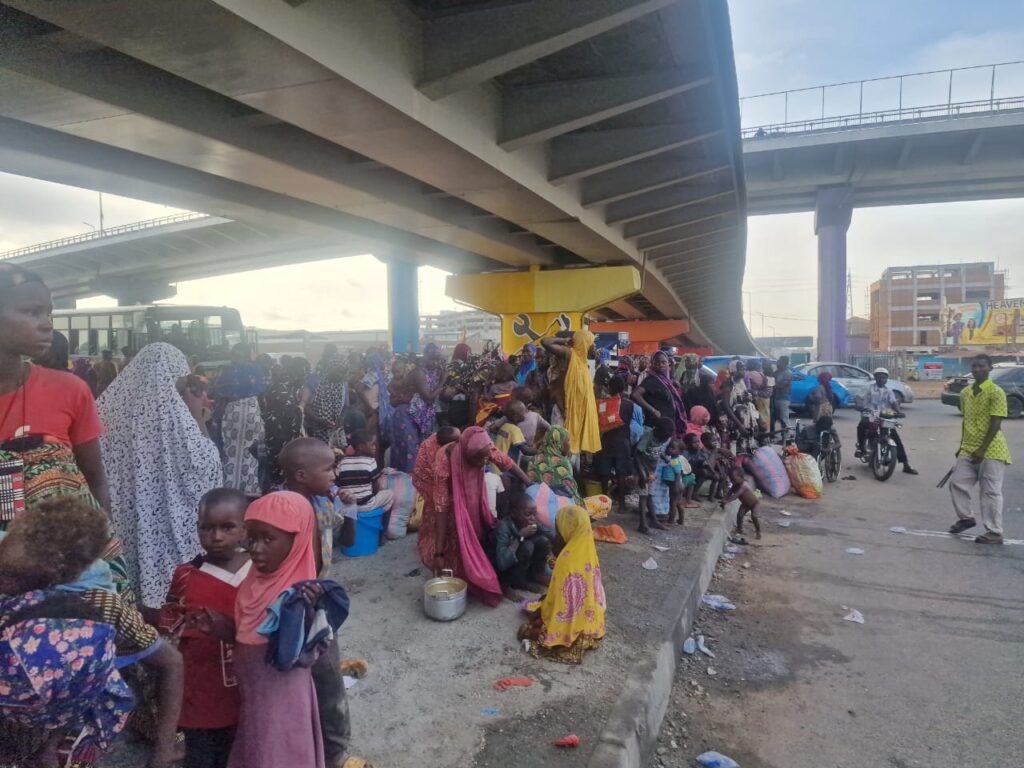Efforts to curb urban congestion in Ghana have once again come under scrutiny, with former Local Government Minister Martin Adjei-Mensah Korsah acknowledging that the country’s greatest challenge is not the absence of legislation, but the chronic failure to enforce existing laws.
His comments come amid an ongoing national decongestion campaign championed by local assemblies, including in major cities such as Accra and Kumasi.
“To a very great extent, the lack of political will, I believe, to enforce is a major issue. If you look at the issue on the table, I would concede that there is a lot of policy and legislation in dealing with this matter, but enforcement or implementation, is the biggest challenge”
Martin Adjei-Mensah Korsah, Former Local Government Minister
While acknowledging that Ghana is not short of policies and laws meant to deal with urban congestion and its associated problems, Adjei-Mensah Korsah pointed to a deeper institutional weakness that continues to paralyse enforcement efforts.
His remarks reflect frustrations long voiced by urban planners and local government observers who have cited political interference and informal power structures as key reasons behind stalled enforcement.

In some cases, traditional authorities and community power brokers have stood in the way of assemblies seeking to demolish illegal structures or remove traders from unauthorised zones.
“Sometimes it’s not even an issue about politicians. We have traditional authorities,” he noted, adding that even before enforcement begins, “you’ll see that there are all kinds of interference, not from the political class, but from other persons or bodies.”

Adjei-Mensah Korsah recounted his own experience in office, stating that during his time as deputy minister, he attempted to hold local assemblies accountable whenever there were violations involving construction in buffer zones or waterways. However, the effort often ran into resistance from entrenched interests, including individuals with political and social connections.
Seasonal Action, Perennial Inaction
A key criticism levelled by the former minister was the cyclical nature of Ghana’s response to congestion and related urban challenges like flooding. He said the state’s response tends to follow a reactive pattern driven by disasters rather than proactive enforcement of regulations.
“We only come around the situation year after year when disaster strikes, otherwise we just go back to sleep, and that for me is a major issue that we need to look at”
Martin Adjei-Mensah Korsah, Former Local Government Minister
In his view, what Ghana needs is not more laws, but the mobilisation of real political will, across both national and local levels, to treat decongestion as a non-negotiable national priority. The former minister’s comments highlight what many see as the normalisation of impunity in the urban governance space, where rules are rarely enforced without fear or favour.

Current Leadership
Despite these challenges, some political figures are hopeful that Ghana may finally break the cycle. Former Ho Central MP, Benjamin Kpodo, expressed confidence in the ongoing decongestion drive led by Mayor Michael Kpakpo Allotey and endorsed by the current government.
With President John Dramani Mahama back in office, Kpodo believes there is enough executive resolve to see the process through. “He has given several warnings to his ministers that they should go by the rules. So I believe that they will keep it to the end of their term.”
“My fear is that perhaps in our election this same old story can reoccur that, ‘oh, let’s let loose a little so that we can get votes.’ But I believe that with the current president’s determination to reset the country, it may not go that way”
Benjamin Kpodo, Former Ho Central MP
Kpodo’s hope for electoral politics to not undermine enforcement of decongestion efforts when Ghana heads into a new campaign season was echoed loud and clear.
He urged continued support for Mayor Allotey and other local officials taking tough stances on enforcement, saying their efforts must be backed if meaningful urban reform is to be achieved. “I quite strongly back the chief executive for what he’s doing now.”
As Ghana continues its battle against urban congestion, the success of current efforts may well hinge on whether political leaders can resist familiar pressures and follow through on their pledges to restore order in the country’s urban centres.
READ MORE: Bond Market Activity Rises 25.14% to GH¢1.41bn Amid Investor Caution




















